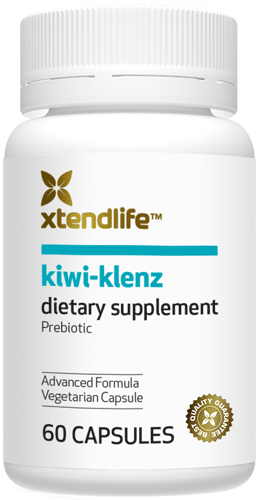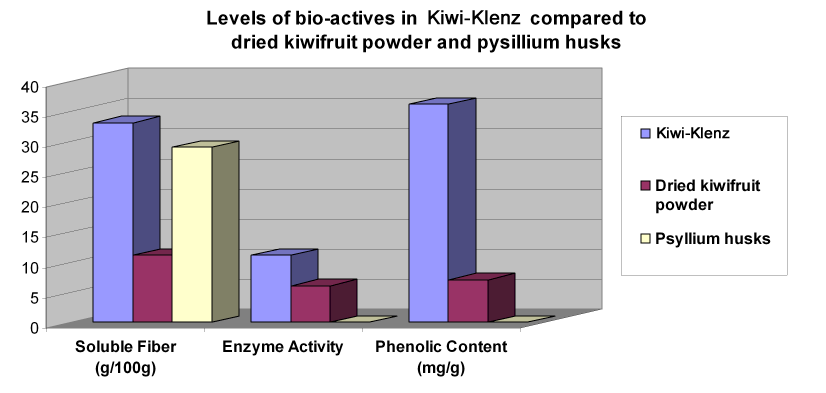Many people wonder whether you can eat kiwi skin. It’s not a very appealing prospect, after all the skin is tough and hairy. However, the reality is that the skin is often the most beneficial part of the fruit. It’s certainly the case where kiwi fruits are concerned. Kiwi skin is a fantastic natural digestive because it’s high in insoluble fiber. It’s also packed full of nutrients.
Did you know that the kiwi fruit is the most nutrient dense of all fruits? This was confirmed by a study conducted in 1997 by Dr. Paul Lachance of Rutgers University, New Brunswick, New Jersey (the findings were published in the October issue of the Journal of the American College of Nutrition).
The skin is particularly rich in phenolic compounds (also called phenols or natural phenols), which are found in plants and are essential for their growth. The most common ones are flavonoids. These compounds actually protect the plants from parasites, bacteria, and cell injury. In the human body, they act as particularly potent antioxidants which neutralize free radicals before they can cause damage. (They’re also great for controlling bad bacteria in the intestine as well).
You may have heard of the terms “antioxidants” and “free radicals” as they’re fairly common these days. But what do they really mean?
The Importance of Antioxidants in the Body
Free radicals are unstable atoms or groups of atoms that have at least one unpaired electron. They can easily bond to the electrons in another atom or molecule. If this happens in large amounts, it can cause significant cell damage and structural changes in the body. Cancer, such as colon cancer, is a common result. It just depends on where the damage is done. Antioxidants contribute electrons to prevent this from happening.
Biochemical processes naturally lead to the formation of free radicals. The body can usually keep them in check. However, a number of lifestyle factors contribute to the formation of excess free radicals. These include exposure to radiation and environmental pollutants, toxic chemicals such as cigarette smoke, and poor diet.
The most common type of free radicals are those that result from oxidative stress. The body uses oxygen to create energy, and oxygen molecules containing unpaired electrons are often released during the process. A diet that’s high in fat can increase the free radical activity because oxidation occurs more readily in high fat molecules than it does in protein or carbohydrate molecules. Fats cooked at high temperatures in particular, can produce a high number of free radicals.
Protein digestion problems can also cause a lot of oxidative stress in the gastrointestinal tract, when and toxins build up.
Antioxidants in Kiwi Fruit are Easily Metabolized
As far as foods go, there are many different sources of antioxidants. However, not all of them perform the same. Obviously, this is a concern in getting maximum health benefits.
Scientific findings have indicated that antioxidants in kiwi fruits are particularly well metabolized and absorbed into the bloodstream. Researchers at the U.S. Department of Agriculture’s Arkansas Children’s Nutrition Center, in Little Rock, compared the antioxidant capacity of kiwifruit, red grapes and strawberries. The study examined increases in blood antioxidant capacity and cells’ increased resistance to oxidative damage induced by hydrogen peroxide. Results showed an antioxidant intake score of 12.5 for kiwi fruit, as compared to 4.2 for grapes and just 1.7 for strawberries.
This study and this study also revealed the positive impact of kiwi fruit on oxidative damage and antioxidant protection.
The Problem with Eating Kiwi Skins
While you might be feeling inspired to try and forget about how unappealing kiwi fruit skins are, and eat them for the sake of your health, it actually might not always be a good idea.
Why?
Reason being, while the skins contain the most nutrients, they will also contain most of the pesticides found in the kiwi fruits. Ingesting these would largely outweigh the antioxidant benefits from the flavonoids. The hair of the kiwi fruit also readily accumulates debris, such as dust and dirt. If consumed, it can increase the chance of developing digestive diseases.
If you can get pesticide-free kiwi fruits that have also been grown away from urban air pollution, by all means do eat the skins. Otherwise, it’s not encouraged.
Fortunately, there is an alternative.
The Best Way to Get the Nutrients from Kiwi Fruit Skins
 Kiwi Klenz is a revolutionary, 100% natural digestive supplement made from the extract of the pulp AND skin of kiwi fruits. Many similar supplements merely contain dried kiwi fruit, with the majority of the beneficial properties damaged or completely destroyed.
Kiwi Klenz is a revolutionary, 100% natural digestive supplement made from the extract of the pulp AND skin of kiwi fruits. Many similar supplements merely contain dried kiwi fruit, with the majority of the beneficial properties damaged or completely destroyed.
Xtend-Life, the manufacturer of Kiwi Klenz, uses a unique to market three step water extraction process that removes the 3 components of kiwifruit that have been demonstrated to aid in healthy digestion — vital enzymes, phenolic compounds, and fiber. What’s more it ensures the absence of dangerous solvents, chemicals, heavy metals and pesticides.

What’s really remarkable about Kiwi Klenz is that because it’s so potent, you only need to take one capsule a day! It’s much more cost effective than eating kiwi fruits and their unappealing skins all the time. Get more information now.



